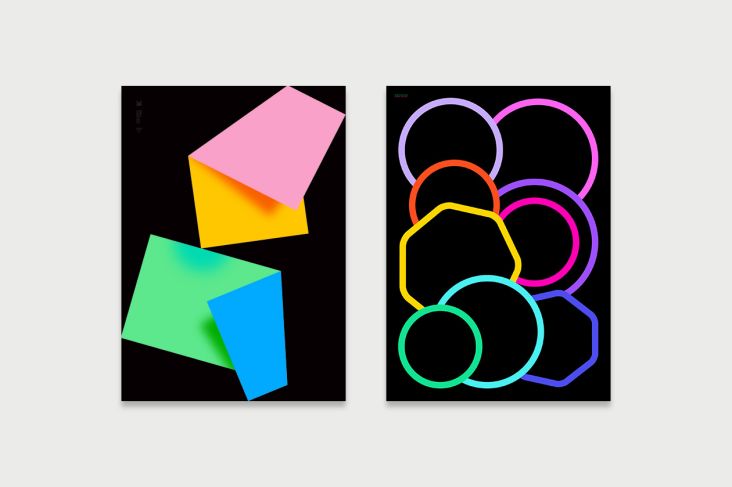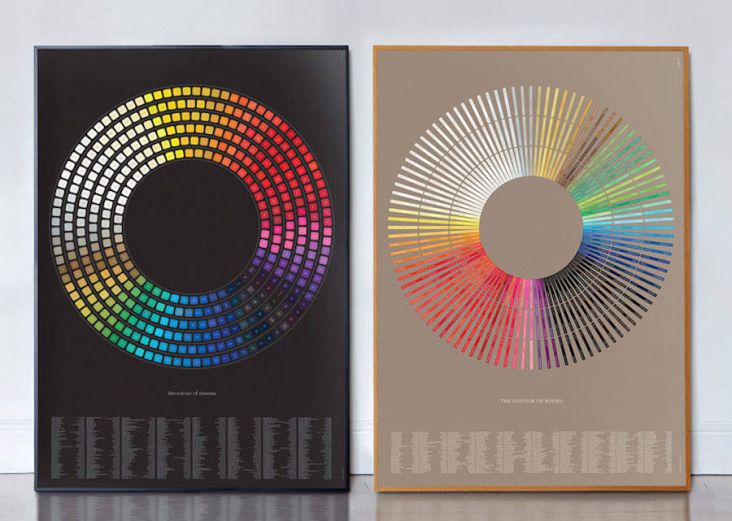Want to be more creative? Here's what music to avoid at all costs
Science says, when it comes to creativity, you are what you listen to. You can dial up a mood, mindset or on-demand by playing the music that generates a specific emotional response in you. Pick the right tunes, and you’ll boost mood, concentration, fire off new synapses and enhance the proliferation of creative thoughts.

Image licensed via Adobe Stock
Music can also fight loneliness and drive you on through times of stress and pain. Perfect for the creative freelancer on a deadline, right?
Music is all-powerful. Just ask Christopher Bergland, the Guinness World Record runner and Triple Ironman Champion (that’s a 7.2-mile swim, 336 miles on a bike, then a 78.6-mile run, one after another). He says: “I used music to stay optimistic and see the glass as perpetually half-full while doing ultra-endurance races. You can use music as a tool when you work out or in your daily life the same way.”
Develop your arsenal of music for a peak performance mindset
Writing for Psychology Today, Bergland says: “As an athlete, I developed an ideal mindset for peak performance and used an arsenal of time-tested songs to fortify this alter ego and invincible state of mind.”
So if you want to bulletproof your creative brain, what tunes should you go for?
Well, there are no shortcuts, and it’s very personal - only you know what is right for you. But as you develop your own “arsenal of time tested songs”, let’s start with what to avoid - and the scientific reasons why.
1. Rock kills focus
When you need to be focused, avoid Rock.
Rock is a heavy user of ‘jarring’, where the guitars often don’t play ‘on the beat’, instead of around it, purposely going too fast or slow to create an effect of being a little in front or behind.
The ensuing confusing rattling through your subconscious brain is called dissonance - the reason they do it is twofold - to keep you paying attention, and manipulate your emotions into a vague feeling of longing. So Rock kills your concentration and makes you feel uneasy and dissatisfied. Not suitable for focusing on creative work!
Rock music has been proven to have a detrimental effect on cognition. A 1987 study to evaluate neurological reactions to various musical rhythms found that mice who were force-fed rock music took five times as long to find their food through a maze as the two other control groups (one with no music, one with classical).
2. Classical - if you don’t love it, it won’t help
You’ve probably heard of the Mozart Effect, where listening to classical music is supposed to improve learning and memory. A 1993 study did show temporary improvement in tasks where students had to create shapes in their minds, but more extensive studies since have found that getting results depends on whether you like the music or not.
According to Mozart Schmo-tzart, a 2010 meta-analysis of a vast number of studies reported a positive effect but also found that other genres of music worked equally well.
A study entitled “The Blur Effect” analysed the cognition of 8000 ten and eleven-year-olds. Some were played classical music before doing abstract thinking tests; others were fed a nourishing 10-minute medley of Blur’s “Country House,”* “Return of the Mack,” by Mark Morrison and Ant and Dec’s “Stepping Stone” (covering the Monkees 1967 hit).
The Blur group significantly outperformed Mozart’s. If you enjoy classical music, go for it. But don’t expect it to help creativity and focus more on any other music, or even listening to an audiobook (one group in the Blur Effect was read a passage of Stephen King).
*(Yes, I know we’ve mentioned rock music as being one to avoid, and Blur can undoubtedly rock out with the best of them. But Country House is the ‘easy listening’ end of their repertoire, and in this case, the dissonance comes from making a depressing story about a rich dude dealing with the emptiness of his existence into a bubbly, bouncy pop anthem - in all, much less jarring than playing behind the beat).
3. Modern Manufactured Pop Music - er, best not
According to research published in Scientific American, as a body of work, the canon of modern pop music has a seen a massive reduction in the variety of harmonic syntax and tone - and therefore lacks the colour and texture of its predecessors.
Essentially, under the bonnet, it’s all got a bit same-y.
I’ll stop short of saying all modern pop is shite (because not all of it is). Still, when you combine it with this study published in PsychCentral, where a three-year analysis of 60,000 people worldwide found that pop music’s fans are less creative than those with more sophisticated tastes, you have to ask yourself: which came first?
So if you want to create new work, why would you listen to homogenised music? According to Scientific American: “Musicians today seem to be less adventurous in moving from one chord or note to another, instead of following the paths well-trod by their predecessors and contemporaries.”
That doesn’t sound like brain food for a days’ high-octane creativity.
4. Unfamiliar tunes: Save new music for leisure
While we know that new experiences fire new neurons and help creativity, but perhaps counter-intuitively, when it comes to music, original is not better.
In a 2007 study into Music and Cognitive Performance, Japanese children drew more creatively - and for longer - after listening to familiar children’s songs they liked, than after listening to unfamiliar classical music.
This ties in neatly with a 2011 study found that found the limbic system and the frontal lobe are both significantly more stimulated by familiar music, even if the unfamiliar music is far more in keeping with the listener’s preferred style and genre.
The limbic system is a critical emotional centre and is crucial to emotion processing, learning and memory. As such, it’s also closely associated with depression and schizophrenia.
The frontal lobe is the home of abstract thinking and meaning-making. It also houses most of our dopamine-sensitive neurons. We know a lot about the heroic properties of dopamine: it’s a key player in attention, short term memory, planning and motivation. In other words: no dopamine, no creativity.
So while it’s important to listen to new music as part of your lifelong research and learning, when you’re working, stick to what you know.
Key takeaway
Whether you listen before or during work depends on the individual. But there is evidence that music during creative work is a big help. A 2005 study into Canadian Software Developers use of music revealed: “Music helped in relaxation, getting around [mental] blocks by changing thoughts instead of getting “tunnel-visioned”.
All it takes is the right music. Now you know what to avoid; only you know what to choose.
As you go about building your arsenal of mood-enhancing productivity anthems, choose songs you love, that are so familiar you can ignore them. This will continuously nourish your creative subconscious while not robbing you of concentration; – it will promote concentration as you are boosting your dopamine levels.
To get to the optimum level, you should make your playlist and hammer it until you naturally ignore it. When you do occasionally notice a beloved melody, it gives you a little lift and keeps your creative lateral thinking buzzing along.
Like Celeda & Danny Tenaglia said: “Music is the answer, to your problems. Keep on moving, and you can solve them.”
Thanks to Scientific American, Psychology Today, Psyche Central and real-life Iron Man Christopher Bergland.




 by Tüpokompanii](https://www.creativeboom.com/upload/articles/58/58684538770fb5b428dc1882f7a732f153500153_732.jpg)

 using <a href="https://www.ohnotype.co/fonts/obviously" target="_blank">Obviously</a> by Oh No Type Co., Art Director, Brand & Creative—Spotify](https://www.creativeboom.com/upload/articles/6e/6ed31eddc26fa563f213fc76d6993dab9231ffe4_732.jpg)
















